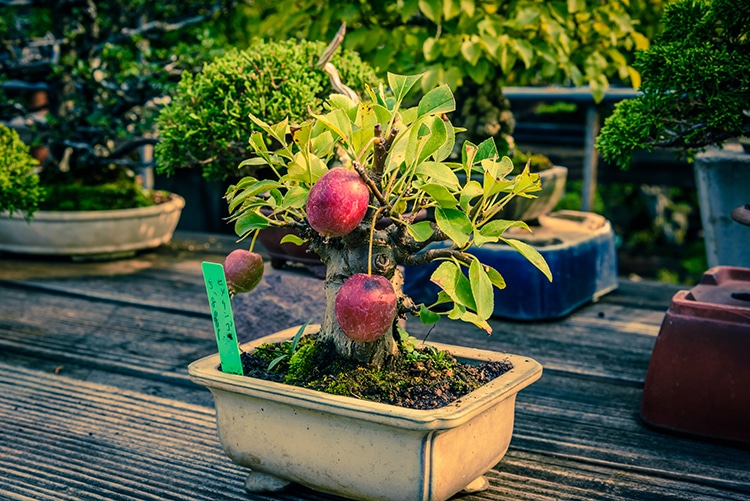
A Bonsai apple tree. (Photo: Stock Photos from ABHIJEET KHEDGIKAR/Shutterstock)
Did you know that tiny Bonsai fruit trees can bear full-sized fruit just like their naturally growing counterparts? Despite their tiny stature, these mini Bonsai are mighty fruit bearers because they originate from the same seeds as regular trees. As a potted Bonsai fruit tree is genetically identical to those in an orchard, the fruit produced often reaches the size found in grocery stores. Full-sized apples, lemons, and quinces grow on tiny Bonsai branches in a beautiful juxtaposition of size.
Most kinds of trees can become Bonsai trees with proper care and skill. Bonsai is actually a Japanese tradition of trimming, cultivating, and training trees to remain miniature. With several years of pruning, feeding, and wiring by a gardener, the trees begin to take the desired shape. Rather than looking like a cutting of a larger plant, the leaves shrink to appear miniature. However, the fruits often remain large. Apples, lemons, quinces, olives, and pomegranates grow to normal size and are edible. Due to the small size of the tree, the amount of fruit harvested from a Bonsai is inevitably limited, but Bonsai trees are intended as an art form rather than a productive plant.
As a process, Bonsai encourages contemplation and discipline. The cultivator must continually shape the tree with wire supports and pruning. Even the roots must be trimmed periodically to fit inside the classic small pots. Learning about Bonsai trees and their intensive cultivation is advisable before purchasing one. There are many types and shapes of Bonsai, each requiring different care strategies. Bonsai is a commitment of time and energy, but the trees can live hundreds of years. The oldest known Bonsai are over 1,000 years old.
If you’re interested in Bonsai trees, you can explore the many varietals and learn more about their care online.
Tiny Bonsai trees can bear full-sized fruit because they are genetically identical to normal-sized trees.
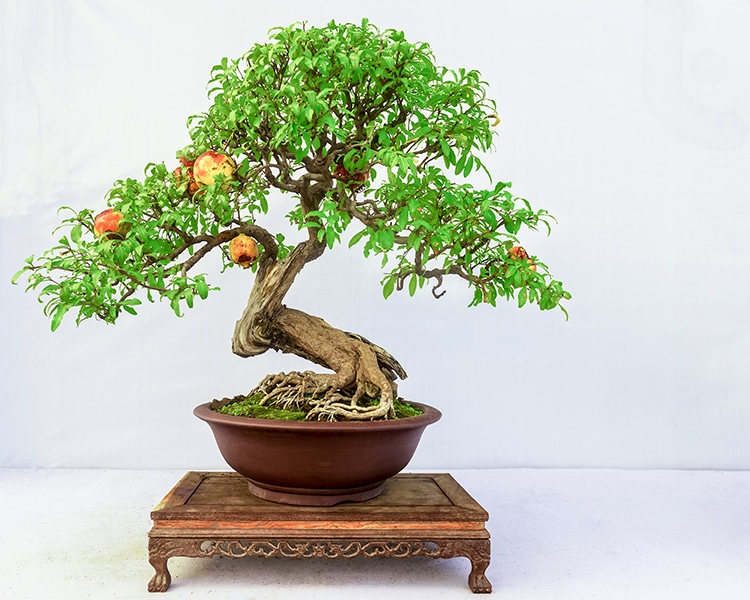
A pomegranate Bonsai tree. (Photo: Stock Photos from LILLIAN_GZ/Shutterstock)
Most types of fruit trees can become Bonsai trees with proper cultivation—this includes training and pruning the tree.
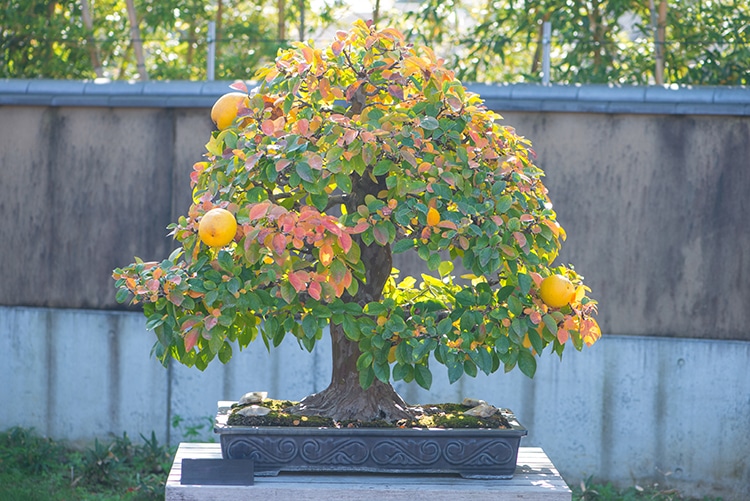
A Chinese quince Bonsai tree. (Photo: Stock Photos from KHUNTAPOL/Shutterstock)
While the leaves of a Bonsai tree shrink to appear miniature, the fruits (such as apples, lemons, or pomegranates) often grow to full size.
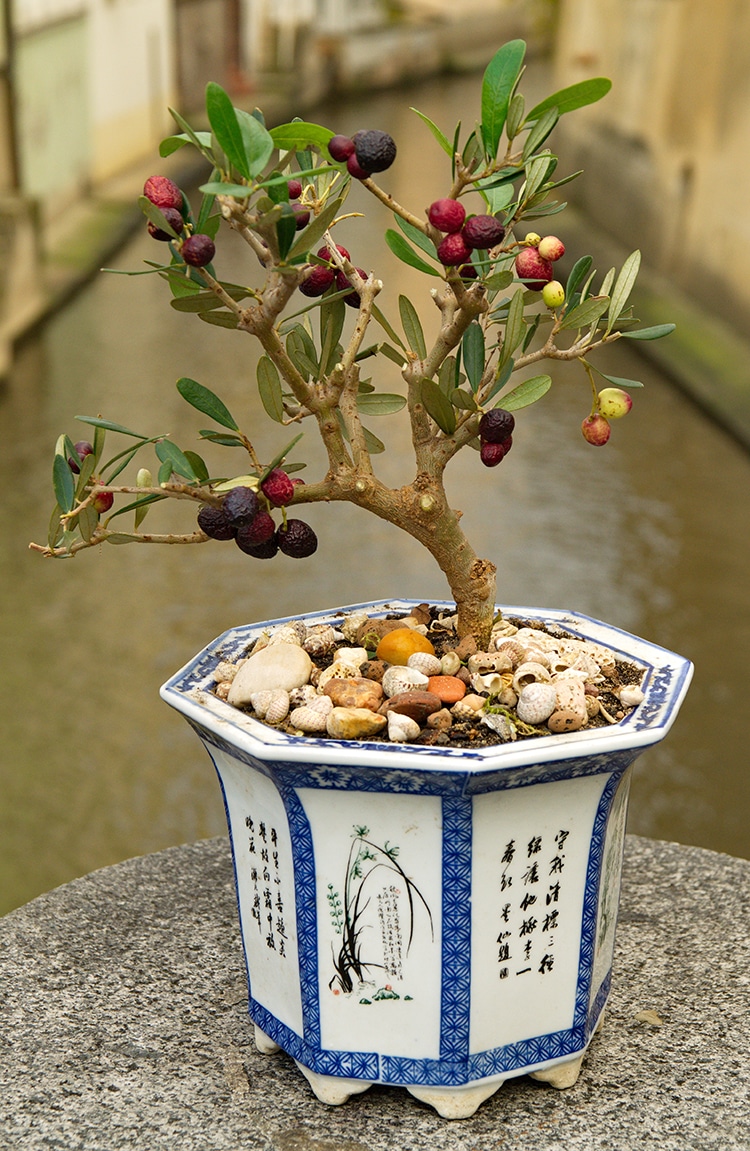
An olive Bonsai tree. (Photo: Stock Photos from PYTRALONA/Shutterstock)
Bonsai trees are an art form, but not very productive as fruit producers due to their size.
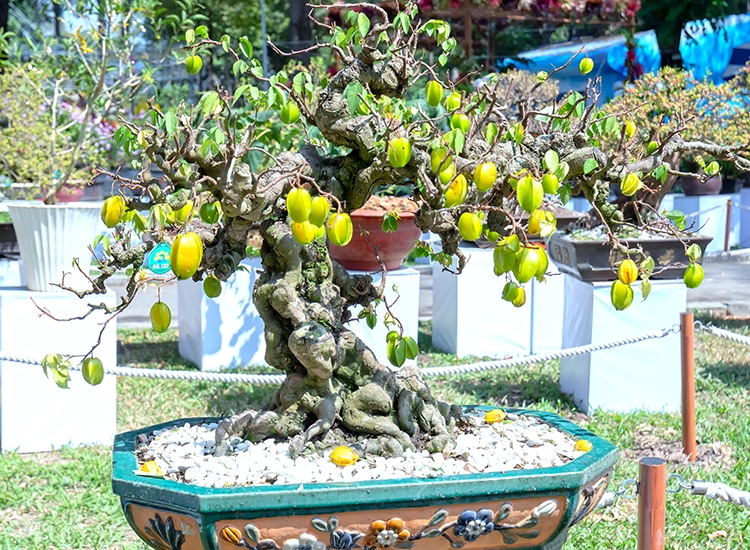
A star fruit Bonsai tree. (Photo: Stock Photos from HUY THOAI/Shutterstock)
Bonsai care can be intensive, so be sure to read up on types of Bonsai and their proper care before you buy any.
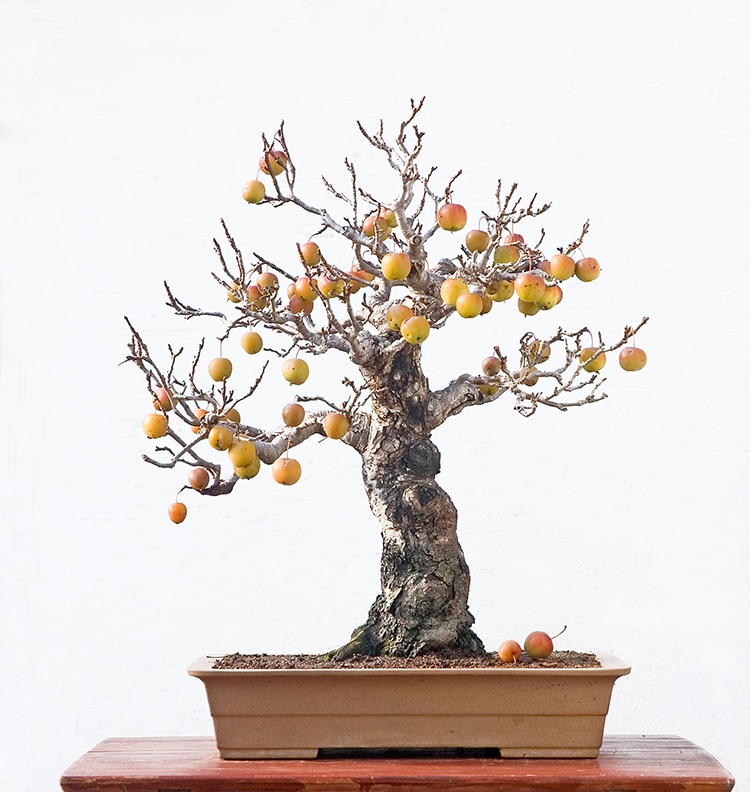
A crab apple Bonsai tree. (Photo: Stock Photos from WALTER PALL/Shutterstock)
Related Articles:
Bonsai Master Masahiko Kimura Creates Gravity-Defying Mini Forests
391-Year-Old Bonsai Tree Survived Hiroshima Bombings and Keeps Growing
Japanese Bonsai Tree Takes a 10-Year Journey Around the Globe
Incredible 15th-Century Japanese Technique for Growing Ultra-Straight Cedar Trees
